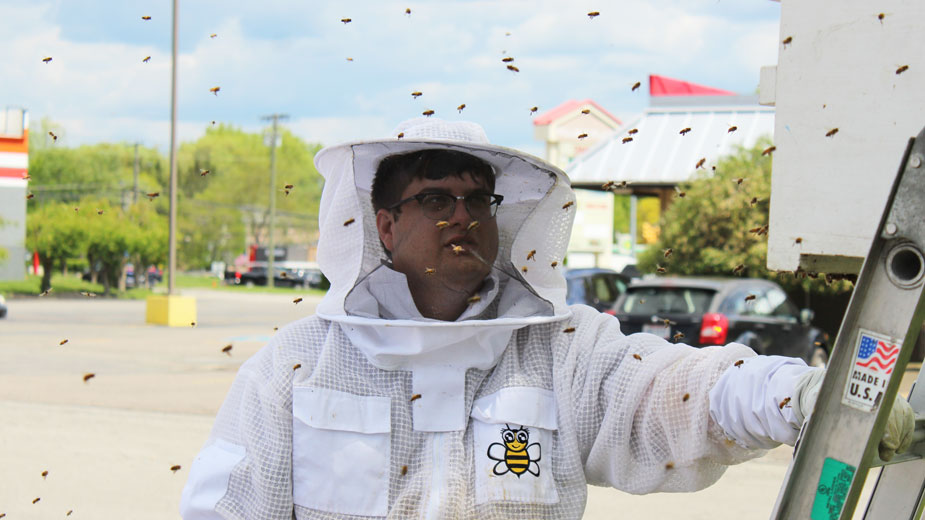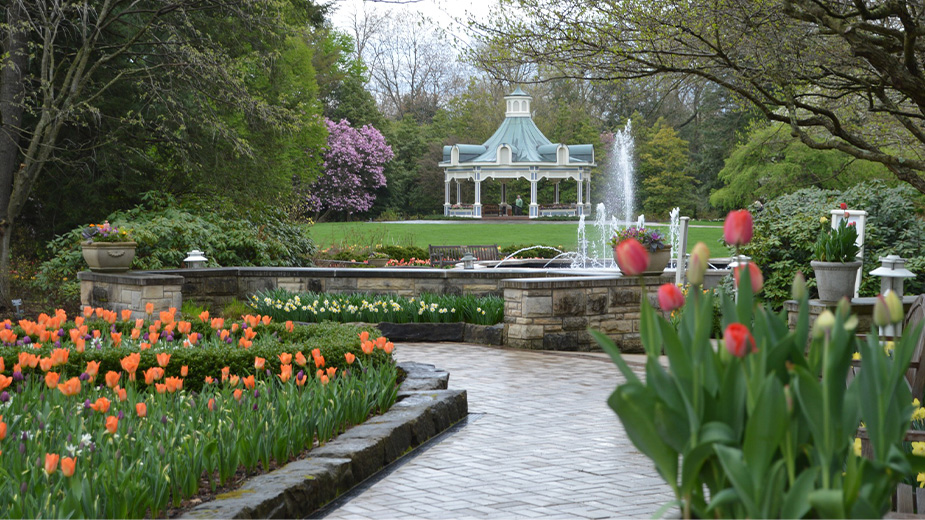Bee Business Buzzes Across Valley
YOUNGSTOWN, Ohio – On the shore of Mosquito Lake, a partnership between the Trumbull County Beekeepers Association and the Army Corps of Engineers is working to bolster the population of insects that are crucial to the state’s ecosystem.
Earlier this year, four beehives were installed as part of the federal Pollinator Partnership Action Plan. In time, the space could grow to as many as 40 hives and feature education space and walking trails for visitors. One hive holds upward of 50,000 bees, each that will travel as far as two miles for their food: pollen and nectar from blossoming plants. And as they fly back to the hive, excess pollen – which contains male gametes – falls off, allowing the plants to reproduce.
“If you go through the grocery store, something like 70% of those foods wouldn’t be here without pollinators,” says Ed Freel, past president of the Trumbull County Beekeepers.
The list of plants pollinated by honey bees includes apples, pears, coffee, cotton, walnuts and lemons. Some, like cherries, rely on bees for 90% of their reproduction. The U.S. Department of Agriculture reported beekeeping adds $15 billion in value to the agriculture industry.
At Mosquito Lake, the colonies are also being used to propagate queen bees that are native to Ohio, helping to prevent the insects from dying off during early spring temperature swings.
“The bees can handle the cold in the spring – they stay in a cluster to stay warm,” Freel says. “When it goes from 50 or 60 degrees and then down to freezing, it’s hard to maintain them.”
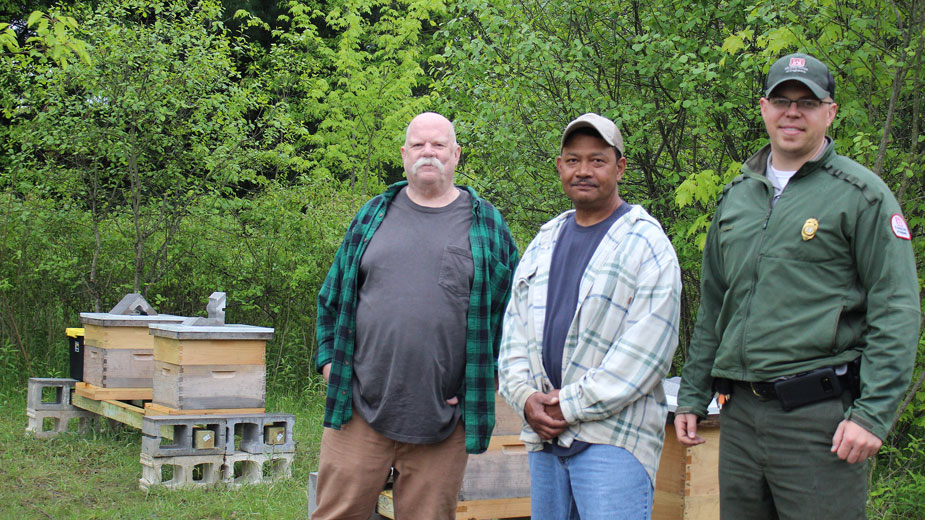
For the Army Corps, the colony is part of the agency’s mission to maintain the natural balance after disruption caused by the construction of the Mosquito Creek dam, says resource manager Bill Spring.
“It was initially pollinator plots – a lot of native flower planting and educational programs. It’s evolved over the years into butterfly gardens and birding programs, which is huge here,” he says. “We disturbed a lot of things by putting this dam in, so we’re helping mitigate that by putting in bees.”
The bees are good for more than just helping plants grow. There’s a booming business behind them, with the total value of honey produced in the United States – some 148 million pounds of it – coming in at $318.3 million in 2017, according to Bee Culture magazine’s annual report.
Ohio produced just over 1 million pounds in 2017, well behind South Dakota’s nation-leading 14.5 million, the report estimates.
“I only got five gallons out of my hives last year, which from a beekeeping standpoint is not a lot. But it was all accounted for within a couple of hours,” says Travis Watson, owner of The Bee Man, based in Canfield. “From a business standpoint, we know where to go, who to sell it to. It sells out quickly for us.”
Watson offers several sizes for his honey, from eight ounces up to a pound – a gallon of honey weighs about 12 pounds – the latter of which sold last year for $15.
Much of Watson’s business is in the extermination of wasps and yellow jackets and he removes swarms of honey bees for free, relocating them to either his own apiaries or to those of area beekeepers.
“Most of my calls are for [wasps and yellow jackets] because there are more of them,” he says, noting that The Bee Man was founded by his grandfather, a beekeeper. “We approach it from that standpoint. If you call an exterminator, they’re just going to kill the honey bees. I like to give people an idea of if they can be saved and, if we can, what the options are.”
Statewide, according to the Ohio Department of Agriculture, there were 21,551 active colonies and 7,644 registered apiaries at the end of 2018.
At FarmGirl’s Honey in North Bloomfield, beekeepers Kimmer and Ed Wolfinger open their store – FarmGirl’s Artful Clutter and Such – four times a year. While much of the store is reclaimed and restored items, a display is set aside for the honey and honey byproducts they make, including creamed honey and lip balms.
“We don’t sell anyone else’s honey. When we’re out, we’re out. We run all our hives chemical free and the farm is certified pesticide free and bee friendly,” Kimmer Wolfinger says. “We don’t make a lot of money on the honey, but the stuff we make out of it is where we gain the money to purchase bees for next year.”
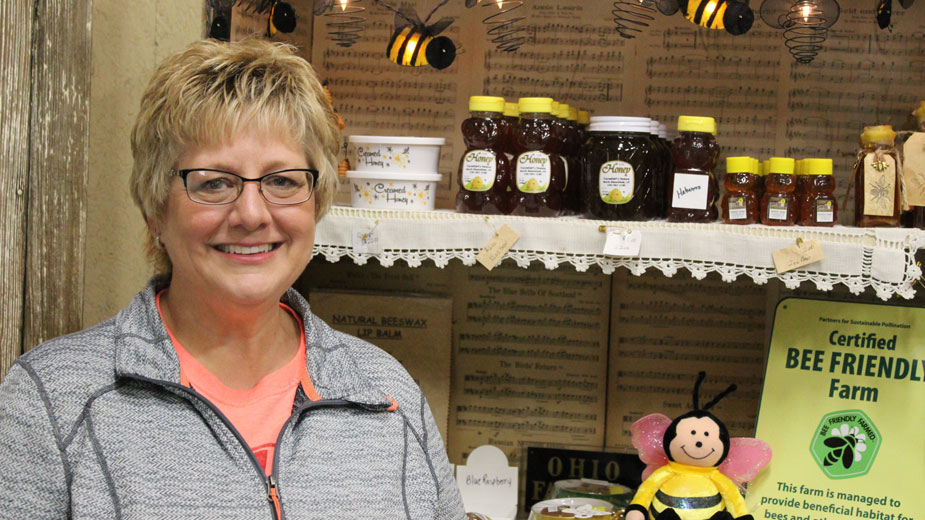
One of the harder facets of the business is keeping colonies in their hives. When swarms are put into a hive, there’s no guarantee that they’ll stay. If a queen decides to make her home elsewhere, the drones and worker bees will all follow. In the decade since the Wolfingers started beekeeping, the price of a nuc – essentially a starter kit for a hive – has doubled to $130, she says.
“Of the four hives we set up, we already lost two of them,” says Victor Cummins, president of the Trumbull County Beekeepers, of the Mosquito Lake colonies. “We were able to track one down, so we got that back. It’s $130 to start a new hive – $20 for just a queen – so you can get down fast.”
But the industry stretches well beyond beekeepers. In February, Container Services Inc. started production at its new, 45,700-square-foot plant in New Castle, Pa. The company makes the bear-shaped bottles of honey found in stores nationwide. Vice president Brent Driggers says he doesn’t have an exact total of how many bottles have been made at the plant, but did note that the honey business is blossoming.
“We see that even with major packers, they’re doing special blends where they focus on geographical areas,” he says. “They’re sourcing all their honey within that and labeling it as ‘Made in the Northeast’ or even down to the state level.”
Container Services, based in Hillsboro, Kan., does produce other types of bottles, but the bear bottles make up most of its business, Driggers says.
“We were right next to a honey packer and they needed somebody to make the bottles. We were doing their bottles in the very beginning and we expanded from there,” he says. “We’re dealing mainly in the half-truckload and truckload quantities.”
Meanwhile, Woodland Cellars in Hubbard deals with honey one 80-gallon tank at a time. Founded in 2012, the meadery is preparing to make its first order of honey this year, owner Nate Wilson says: 1,800 pounds from McCune Family Apiaries in Auburn Township.
“The smaller the source, the better. When you have somebody that’s just a guy in his garage doing it himself, there’s that attention to detail,” Wilson says. “The care that he has with his hives, that makes a world of difference.”
To get the flavor he’s looking for, Wilson looks for a blend of early-season and late-season honey when he buys product. Virtually all of Woodland Cellars’ mead, including it’s Eye of Odin line, is made with wildflower honey.
“Spring is a little more acidic with some bite to it and it’s lighter. In the fall, it’s a little earthy and more concentrated because they’re getting ready for winter,” he says. “Clover honey will have a little more of a tingle when you swallow it versus wildflower honey that’s smooth.”
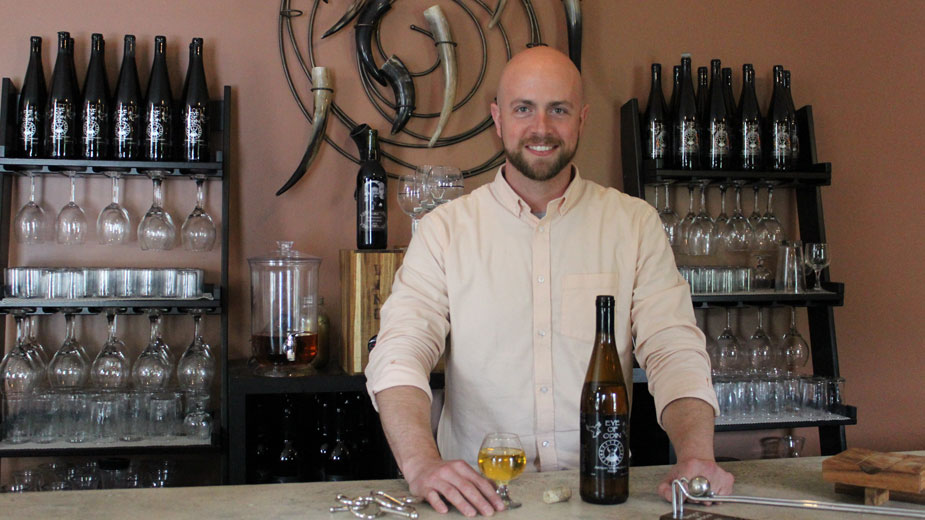
While mead doesn’t have the same type of popularity that craft beer does, he says the drink is experiencing the same surge in activity nationwide.
“The beautiful thing with mead is that it’s following the same growth curve as the beer market,” he says. “Brewing is up there and we’re down here, but it’s still the same trend.”
While there’s certainly good money to be made in honey and its byproducts, those like Cummins tout its effect on the ecosystem as the biggest reason they got into beekeeping.
“Beekeeping is a big business, but for me being a naturalist and outdoorsman, I see it from the pollination side. I want to sustain our fruits and vegetables, our farming,” Cummins says. “I’m against chemical fertilizers. I don’t see getting into the business end. There’s a lot of money to be made, but it’s not what I’m focused on.”
Pictured: Travis Watson, owner of The Bee Man, removes honey bee swarms for free and relocates them into either his apiary or those of area beekeepers.
Copyright 2024 The Business Journal, Youngstown, Ohio.
